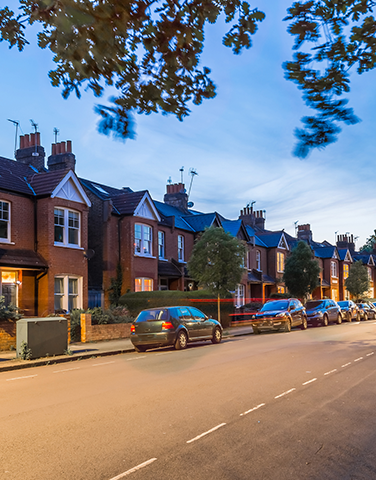
Thinking of trading town for country? Some practical considerations to ponder before you make the move
With the ever-growing appeal of rural living, with more space, greener views and a slower pace of life, many homeowners are considering a move from their townhouses to countryside cottages or estates. But buying a rural property can bring a unique set of legal considerations that can come as a surprise to many urban homeowners. At Cripps we have extensive experience in advising on the unique complexities of purchasing properties in rural areas.
Private drainage: not all systems are created equal
In towns, mains drainage is standard, and something that is often not given much consideration. In the countryside, it is far more common for properties to rely on private systems, such as septic tanks or sewage treatment plants. Instead of relying on a statutory provider, these systems come with maintenance responsibilities and obligations for the owner of the property to empty the system, maintain it and repair it if damaged. The Environment Agency can now also require certain systems to be upgraded or replaced if they do not comply with current regulations, and as such, new owners of these properties can inherit the costs of bringing these systems up to standard. This can bring unanticipated expenses soon after relocating if not investigated as part of the purchase.
Searches: the importance of understanding the land to be purchased
Many properties in rural areas are in sensitives zones, like Areas of Outstanding Natural Beauty, green belt or conservation areas. These are designations that impose stricter limits on planning permissions and as such it is important to check that conversions, extensions and outbuildings have the correct planning permissions and building regulation approvals. It is important to review the history of the planning consents in correlation with the restrictions on the legal title. The rural landscape can also bring with it more complex environmental factors that may have not presented in an urban environment. Obtaining a flood risk assessment is often necessary as many rural properties are closer in proximity to rivers, streams and field drainage systems, presenting a higher level of risk than most properties in towns.
Rights of way: private and public
Depending on the location and size of the property, it is not unusual for rural properties to be subject to footpaths and bridleways. Public rights of way are protected under law, and as such, this can present difficulties for new homeowners. Obstructing a public right of way is a criminal offence, and re-routing a public right of way is a complex process, requiring approval from the local authority. It is important for searches to be carefully reviewed, and the correct enquiries to be raised to ascertain the situation at the property. Private rights of way are also very important, especially when they can impact access to your home, as will be discussed in more detail below.
Access: often a meandering pathway to discover the actual situation
Often it is the case that properties will be accessed by a private road from a public road. However, often properties lack the necessary formal legal rights to use those private roads or there may be a gap with the public highway. This can lead to difficult instances, especially if an accessway is shared, as this can cause disagreements between neighbours regarding the maintenance obligations.
Boundaries: Your fence or mine?
Boundaries between properties are not always clearly defined, and many older properties may have plans that are unclear, or do not reflect the position on the ground. It is important to understand your rights and obligations surrounding the land you own and the boundaries that you must maintain.
Agricultural restrictions: does this tie suit?
It is vital to ascertain that the property and the land that it encompasses is not subject to any restrictions on who may occupy it. Some properties have agricultural occupancy conditions which limit the occupancy of the property to someone who is employed in farming. Sometimes known as “Agri Ties”, these can be time consuming and difficult to remove, and can affect the value of a property, as there is a limited criteria of people who are able to purchase the property. Land may also be subject to grazing licences/tenancies or may contain rights for local farmers to access water from wells or have access to certain land. It is vital that an incoming purchaser understands the obligations that may come with owning their land.
Utilities: Where the working from home dream can become a nightmare
Going from a townhouse with ultra-fast broadband, to one bar of service can be a shock, especially if you have moved out of a smaller townhouse to gain a larger property for the purpose of having a home office. Working from home may have seemed like a dream set up, but complications with broadband speeds and varying levels of mobile phone reception can lead to challenges, especially when trying to join a virtual meeting!
Some rural properties are also not connected to mains water, instead relying on private supplies to individual properties. Many also use oil, LPG or solid fuel heating systems rather than mains gas. These often require delivery, and it will be impossible to consider the cost of transport, the storage of the fuel and the risk of potential supply interruptions in bad weather. There may also be supply and service contracts which can pass to the owner upon completion
These are all important considerations that need to be weighed up carefully when considering a move to a more rural setting.
Ultimately, country living can be idyllic, but there are also challenges that can come from moving from a town, and they are often ones that are not considered early in the property buying process. It is vital that a thorough legal investigation along with tailored advice is provided to ensure that the process of escaping to the countryside is one that is a smooth transition.
How we can help
If you are thinking of making the move, our expert residential conveyancing team are here to help.





 Download PDF
Download PDF






